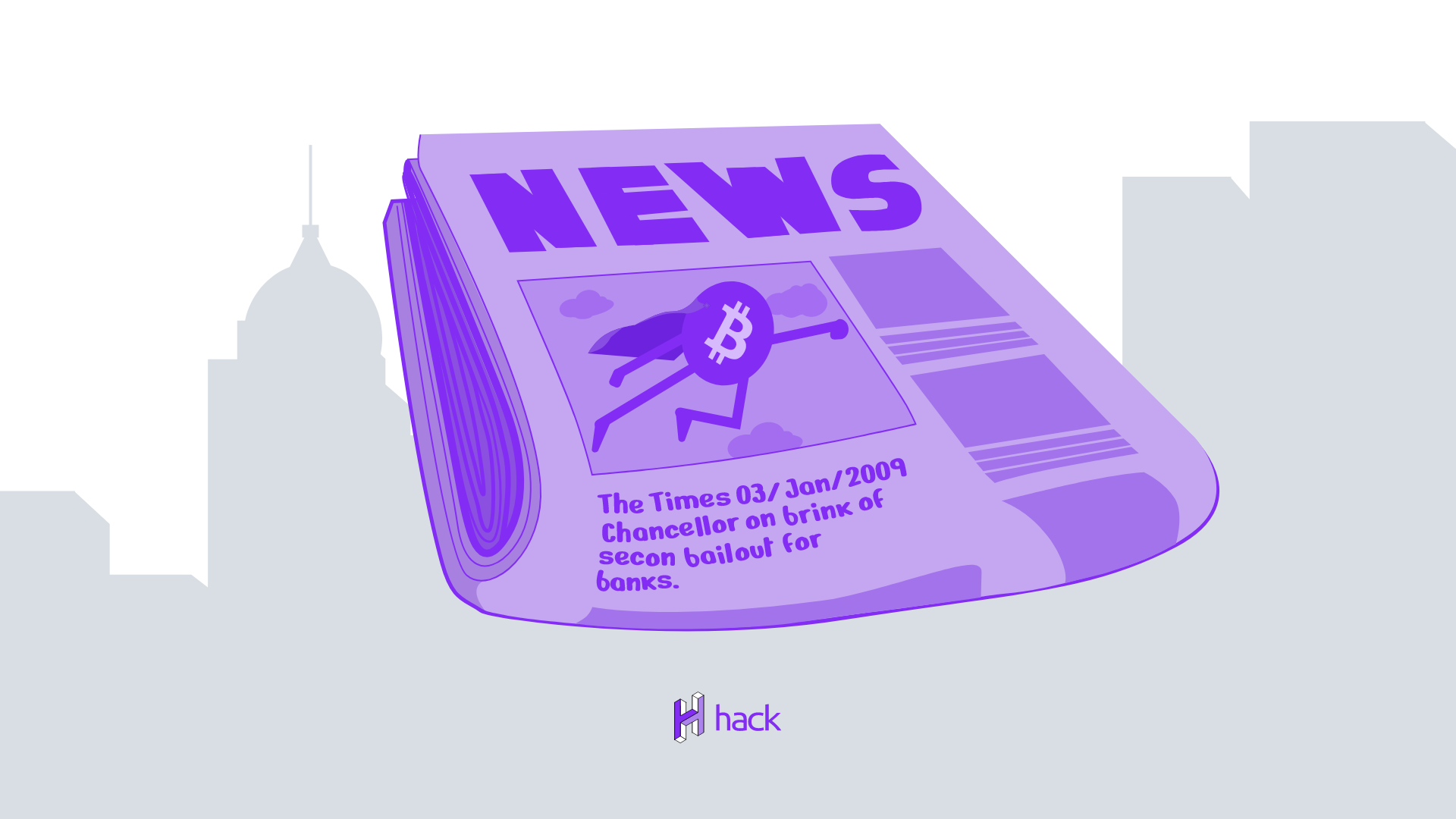In recent months the price of Bitcoin has risen sharply on balance, despite some fluctuations, pressing questions like Is Bitcoin money or not? Why is Bitcoin valuable? And what does the future hold?
The discussions about Bitcoin are very broad and opinion is divided on even its most basic aspects. For example, Bitcoin was designed to be a payment method, but more and more people have come to view it mainly as a new investment. The likely future of Bitcoin is also the subject of debate; will it replace the existing system, or will it eventually become just another new financial product that exists alongside the ones we already know?
In a world full of uncertainties, one thing is for certain – many people are starting to ask these questions and are becoming more and more economically aware and concerned.
But, What led to Bitcoin awareness?
Well, it is the loss of trust in the US dollar.
Don’t get me wrong. The US dollar is still the world’s reserve currency, and in fact, makes up a larger portion of strategic reserves (foreign exchange reserves) today (~60.5%) than it did from 1980 to 1995 (as low as 47% of total reserves in 1990). The US dollar is also still the world’s settlement currency as its accounts for somewhere around USD 6 trillion settled every decade.
However, the greatest market force cementing the dollar’s position as the world’s most important form of money may be the value of global debt markets priced in USD. In Q3 2020 alone, 65.9% of total debt (~1.333 trillion USD value) in international debt markets was denominated in USD (USD 878.4 billion). This averages out to USD 3.5 trillion of debt created for the year.
The trust required in a financial instrument to attract this level of dominance is immense. It is not only a reflection of the power of the U.S. Economy – debt issuance in the Chinese Yuan is 0.3% of the total despite an economy around 2/3 the size of the United States – but denotes trust in the US system.
Put even more bluntly, the US dollar is the system.
So, how can we claim that there is a loss of trust in the US dollar with this immense dominance?
Examining the US dollar as money and finding it lacking depends on firstly defining what money is, we argue that the US dollar is currency – a means of transactional payment – as opposed to money – a store of value (commodities or precious metals).
So if US dollars are money, they must be valuable to hold and lend but they are not. Additionally, US dollars were holding their value against other assets in their class (currencies), however, they have not been holding value against currencies in the second half of 2020, but have not held their value against monies (bitcoin, silver, gold) or other commodities, eighter.
But, let’s say that’s ok… Since in the modern ages countries left the gold standard in an effort to curb concerns about runs on federal gold supplies, many global currencies are now classified as fiat.
However, fiat currency is issued by a government and not backed by any commodity, but rather by the faith that individuals and governments have that parties will accept that currency. So, basically, the US dollar is controlled by a central authority (government) that since the start of the Covid-19 pandemic has printed the dollar in limitless quantities without undermining its reserve currency status, allowing the country to keep running large deficits without apparent consequences.
The loss of status as money has implications for using the currency as a settlement layer. When the settlement layer is no longer money, no longer a reliable place to store value long-term, and the trust is lost, other avenues will be sought. Again these avenues include bitcoin, silver, and gold, all of which are trading higher and higher by the day: 20+% over 1 year (with bitcoin obviously trading much, much higher than the others).
Why Bitcoin is a superior store of value ?
Successful currencies have some key attributes—scarcity, durability, fungibility, verifiable, storable, portable, adoption, provable. The cryptocurrency Bitcoin has value because it holds up very well when it comes to these six characteristics. Plus, it is controlled by a decentralized network with a transparent set of rules, thus presenting an alternative to government-controlled fiat money making it a plausible way for storing value (exclude investing in stocks, bonds, and real estate).
Scarcity
While there are several characteristics needed in an ideal store of value asset, scarcity is the most important of them all. In order to be a store of value, the good cannot be abundant, easy to obtain, or easy to produce in quantity otherwise it would be trivial to increase the supply of the good.
Bitcoin has absolute scarcity. There will only ever be 21 million Bitcoin in existence and after the year 2140, no more will be created. Thus, Bitcoin is the only liquid asset in the world that has a fixed supply. That makes Bitcoin the scarcest asset in the world. With a fixed supply, any increase in demand means the value goes up over time making it an ideal store of value asset.
Durability
To be effective, a currency must be at least reasonably durable. Coins or notes made out of materials that can easily be mutilated, damaged, or destroyed, or which degrade over time to the point of being unusable, are not sufficient. Bitcoin is durable.
Fungibility
A store of value needs to be mutually interchangeable. The ability to replace one good with another identical good simplifies the exchange processes, as fungibility implies equal value between the assets. This is important for a store of value because the holder of the asset knows they can easily sell the good in the future to a wide range of buyers, the good is more likely to hold its value.
Verifiable
Easy verification simplifies the exchange process thus increasing confidence in the holder that they will have no issue in receiving value in the future. Knowing that the good cannot be counterfeited ensures the market will not be flooded with fake goods and also increases confidence levels in future transactions. Bitcoin is simple to verify. The Bitcoin blockchain is constantly validating and verifying each block of transactions it receives to ensure that everything in that block is fully valid, allowing anyone to trust the block without having to trust the miner who created it. Furthermore, the ledger is transparent and immutable so that anyone can verify the validity of any coin or any transaction at any time.
Storable
Because a store of value asset is meant to be held onto well into the future, there must be a secure method of storing this asset. Bitcoin is easy to store. Bitcoin is digital and therefore does not require a large vault or safe. Anyone can self-custody any amount on their own using a digital wallet that is either software-based or hardware-based.
Portable
A store of value asset ideally is easy to transport, making it simple to access regardless of where you are. Portability is not an issue with Bitcoin. It can be stored on a thumb drive or accessed anywhere in the world that has an internet connection meaning that you can “take it with you” wherever you go.
Adoption
Widespread adoption is crucial for a store of value because the longer the good is perceived to have been valuable by society, the greater its appeal as a store of value.
Bitcoin is gaining ground quickly. Not only is the value of Bitcoin going up, but it’s also beginning to eat into gold’s market share as more and more people are selling their gold in favor of Bitcoin. According to a recent report from CoinShares, gold saw a record $9.2 billion outflows during a four-week period in November and December of 2020. In the same period, Bitcoin funds experienced an inflow of $1.4 billion.
Provable
One thing we have never been able to do with physical assets precisely measures the exact amount of existing supply. No one actually knows the exact total or circulating supply of either fiat currencies or gold. However, with Bitcoin, we can do exactly that. Because every Bitcoin in existence and every transaction is immutably recorded on the blockchain, we can measure with 100% accuracy and 100% certainty the total supply, the circulating supply, transaction volume, and velocity of Bitcoin.
But, Bitcoin is not “backed” by anything..
Well, gold as well as other commodities are tangible and serve the needs of the society, and are used in other applications other than an investment or medium of exchange. So they have intrinsic value by themselves.
Bitcoin, in contrast, is digital. In addition to being a store of value, Bitcoin also is a payment system. For the first time in history, we are witnessing a currency that goes with its own payment system. The real value of Bitcoin lies in the ability to transfer value in a Peer-To-Peer manner, without the need for a third party or middleman and without either party having to take counterparty risk. The value is in the payment network and the coin is merely an expression of that value. It also happens to be that this coin is portable, divisible, fungible, durable, verifiable, and, most importantly, scarce.
Final Thoughts
Bitcoin highlights how fundamentally bizarre money is. In some sense, money isn’t “real” in the way that a tree is. It’s a human invention, a value token that makes exchange easier. But it’s real enough and people trust it — people fight and die for it and empires fall for the lack of it.
But in 2008, as the banking crisis was in full swing, a lot of people were looking for alternatives to the mainstream financial system.
In August 2008 some tech-savvy true beliver/s created one that really took off (as there had been other attempts at digital cash). The influence of the banking crisis on bitcoin’s ideology was the main kick that helped bitcoin break out as the best possible alternative to society’s collective anxieties around the financial system.
The idea of a purely peer-to-peer version of electronic cash that allows online payments to be sent directly from one party to another without any trust in a financial institution is one ideology. But the original ideology is even more radical than that: if we believe that the state is simply a designated force for violence, then it’s possible to also believe that fiat currency is an enforced state monopoly. Bitcoin upends that monopoly, serving in part as a currency-based way to hate the government, making bitcoin a different way of thinking, a quiet protest.
For most of its life, bitcoin drew from three main overlapping communities: the small community of original investors, enthusiasts and true believers, the blockchain technology aficionados, and the speculators who are just here for the get-rich-quick scheme. Lately, another community has emerged: old-fashioned stodgy finance types.
With the continuous rise of bitcoin popularity and understanding, many big corporations, investors, and individuals are starting to keep a closer look at its true possibilities. At this point, it is starting to become almost inevitable to avoid bitcoin, decentralization, and blockchain as more and more people are gaining awareness every day and we are keen to witness where all of that is heading.
For the sake of a greater future.
This information is for educational purposes only and should not be taken as investment advice, personal recommendation, an offer, or solicitation to, buy or sell any financial instruments. hack.bg makes no representation and assumes no liability as to the accuracy or completeness of the content of this article. Make sure you understand the risks involved in trading before committing any capital. Never risk more than you are prepared to lose.



